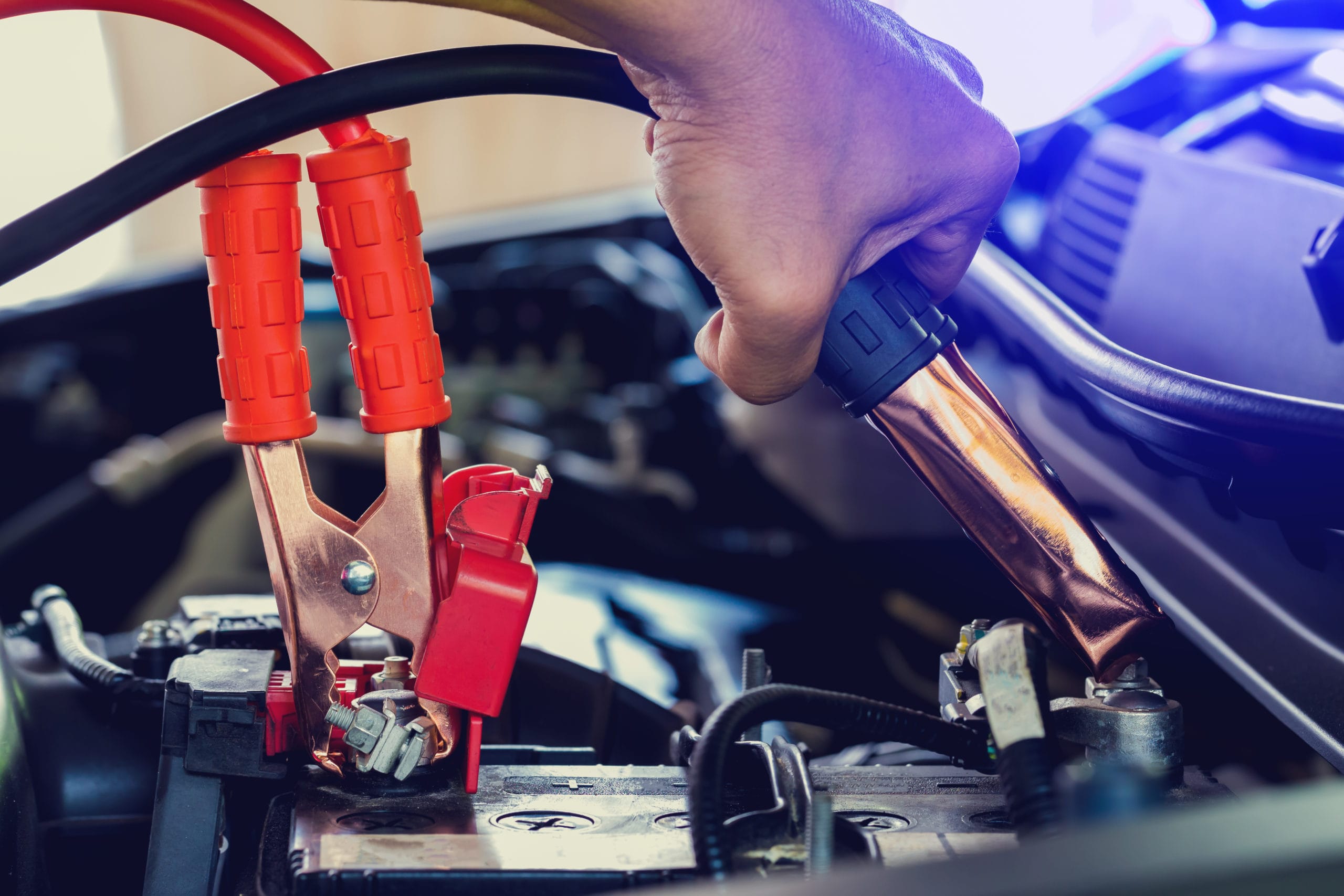A car battery not holding a charge is frustrating. It can leave you stranded.
There are signs to watch for to avoid surprises. Understanding these signs helps prevent inconvenience and costly repairs. Cars rely heavily on batteries. A faulty battery can affect many functions. Knowing when a battery fails to hold a charge is crucial.
It impacts car performance and safety. This guide explores key indicators of battery issues. Recognizing these signs early saves time and money. It keeps your car running smoothly. You’ll learn about common symptoms and what they mean. This knowledge empowers you to take action before problems escalate. Stay informed and ensure your car’s reliability. Let’s dive into the details of battery health.
Common Symptoms Of A Failing Battery
Car batteries play a crucial role in starting your vehicle. A failing battery can cause various issues, leaving you stranded. Knowing the symptoms of a failing battery can save you time and frustration. Here, we explore the common signs that your car battery might be failing.
Slow Engine Crank
A slow engine crank is a common sign of a failing battery. The engine struggles to start or cranks slowly. This indicates the battery lacks enough power. If the cranking sound is sluggish, check the battery. It might not be holding a charge.
Dashboard Warning Lights
Dashboard warning lights can alert you to battery issues. The battery light might flicker or stay on. This suggests the battery is not charging properly. Pay attention to these warning signs. They often indicate a battery problem. Addressing them quickly can prevent further issues.

Credit: www.reddit.com
Physical Signs To Inspect
When your car battery starts acting up, it might be whispering signals of distress through various physical signs. These signs are often visible and can be identified easily if you know what to look for. Knowing these can save you from unexpected car troubles and help you address the issue before it escalates.
Corrosion On Battery Terminals
One of the most common signs of a battery not holding a charge is corrosion on the terminals. This often looks like a crusty white or greenish substance. If you’ve ever popped your hood and been greeted by this sight, it’s time to take action. Corrosion can prevent your battery from effectively transmitting power to your car.
Cleaning this corrosion can be a simple task. A mixture of baking soda and water can do wonders. Remember, safety first—use gloves and goggles. If you’ve ever thought, “I don’t need to clean that yet,” consider the impact of neglect. Those corroded terminals could be the reason your car hesitates to start.
Swollen Battery Case
Another alarming sign is a swollen battery case. This often indicates that the battery has overheated. Overcharging or extreme heat can lead to this condition. If you’ve ever noticed your battery looking bloated, it might be time for a replacement.
Ignoring a swollen battery is risky. It could leak or even burst, damaging other components of your vehicle. Have you ever wondered if your battery case looks normal? Checking it regularly can prevent costly repairs down the line.
Have you ever experienced these physical signs? Keeping an eye out for corrosion and swelling can be crucial in maintaining a healthy car battery. Remember, these signs are your battery’s way of asking for help. Addressing them can keep your car running smoothly and save you from unexpected hassles.
Testing The Battery Voltage
A weak car battery might not hold a charge. Testing the battery voltage reveals its condition. A low reading suggests replacement.
Testing the voltage of your car battery helps identify charging issues. It’s a straightforward method to assess battery health. Knowing the voltage gives insights into the battery’s condition. Many drivers use this method to ensure their vehicles run smoothly.
Using A Multimeter
A multimeter measures the voltage of your car battery. Start by turning off your car’s engine. Open the car’s hood and locate the battery. Set the multimeter to DC voltage, usually indicated by a “V” with straight lines. Attach the red probe to the positive terminal of the battery. Connect the black probe to the negative terminal. Ensure the probes have a firm connection.
Interpreting Voltage Readings
A fully charged battery should read around 12.6 volts. If the reading is below 12.4 volts, the battery may not hold a charge. A reading below 12 volts indicates a significant issue. A reading above 12.9 volts suggests overcharging. Consistent readings can guide maintenance decisions. Regular checks can prevent unexpected breakdowns.

Credit: www.howacarworks.com
Factors Affecting Battery Life
Car batteries don’t last forever. Various factors influence their lifespan. Understanding these elements can help maintain your battery better. This knowledge ensures your car runs smoothly. Let’s explore the main factors.
Weather Conditions
Extreme weather can harm car batteries. Cold temperatures slow down the chemical reactions inside. This can make the battery weak. It might struggle to start your engine. Hot weather isn’t any better. Heat speeds up chemical reactions. This can cause the battery fluid to evaporate. Less fluid means less power.
Driving Habits
Short trips can drain your battery. The alternator needs time to recharge the battery. If you frequently take short trips, the battery might not recharge fully. Long periods of inactivity can also be harmful. A car battery loses charge when not used. Regular driving helps keep it healthy.
Preventive Measures To Extend Battery Life
Your car battery is the heart of your vehicle’s electrical system. Keeping it in top condition is essential for smooth driving experiences. But how do you ensure your battery lasts longer and doesn’t leave you stranded? Let’s dive into preventive measures that can extend your car battery’s life.
Regular Maintenance
Regular maintenance is key to a healthy battery. You wouldn’t skip a doctor’s visit for years, would you? The same goes for your car battery. Check your battery connections for corrosion. A simple cleaning with a mixture of baking soda and water can prevent this issue. It’s surprising how much gunk can build up!
Ensure the battery is securely fastened in its tray. Vibrations from a loose battery can reduce its lifespan. A quick check can save you time and money. Also, test your battery’s voltage periodically. Many auto shops offer free testing services. Knowing your battery’s health can prevent unexpected failures.
Avoiding Short Trips
Short trips can be a silent battery killer. Ever noticed how your phone dies faster when you keep turning it on and off? It’s similar for car batteries. Frequent short trips don’t allow your battery to fully recharge. Consider combining errands into longer trips. This practice gives your battery the time it needs to recharge properly.
Think of your battery as a marathon runner, not a sprinter. It performs best when given the chance to run steadily rather than in short bursts. If you find yourself making many short trips, perhaps it’s time to rethink your driving habits. Could you walk or cycle for those quick errands?
Taking these preventive measures can make a significant difference in your battery’s lifespan. Are you willing to invest a little time now to save yourself from future headaches? Your car battery will thank you!
Solutions For A Battery Not Holding Charge
Dim headlights or a slow engine start signal a weak car battery. Difficulty starting or frequent jump-starts indicate charging issues. Consider checking the battery voltage or visiting a mechanic for professional advice.
Your car battery is essential for keeping your vehicle running smoothly. But what happens when it stops holding a charge? This can be frustrating and inconvenient. Fortunately, there are solutions to tackle this issue effectively. Let’s dive into some practical steps you can take to get your battery back in shape or decide if it’s time for a replacement. ###
Recharging The Battery
Start with recharging. It might sound obvious, but a simple recharge can sometimes solve the problem. You can use a car battery charger to give your battery the boost it needs. Make sure your car is turned off and follow the charger’s instructions carefully. If you don’t have a charger, most auto shops offer this service for a small fee. If you’ve experienced your car struggling to start after a long winter, a recharge could be your savior. Often, cold weather drains battery life faster than expected. But if recharging becomes a frequent need, there could be underlying issues to address. ###
Replacing The Battery
There comes a point when recharging is no longer enough. If your battery refuses to hold a charge despite several attempts, replacement is the best option. Look for signs like corrosion on battery terminals or a bloated battery case. These indicate it’s time for a new one. Choosing the right battery can feel overwhelming. Consider factors like size, brand, and warranty. When I replaced my car battery last year, I opted for a well-reviewed brand with a longer warranty. It gave me peace of mind and saved me from future headaches. Have you checked your battery recently? Small steps like regular maintenance checks can save you from unexpected failures. Don’t let a dead battery catch you by surprise. Evaluate your options and decide what works best for your vehicle’s needs.
Professional Help And Services
A weak start or dim headlights might signal a battery issue. Frequent jump-starts also indicate it isn’t holding a charge. Consult a professional to diagnose and fix battery problems before they worsen.
Professional help can save time and ensure your car battery works correctly. Mechanics and service centers offer expertise in diagnosing battery issues. They have tools and knowledge for accurate assessments. Seeking professional services can prevent future problems.
Consulting A Mechanic
A mechanic can identify battery issues efficiently. They check the battery’s health and connections. Mechanics have experience with various car models. They provide insights into related electrical problems. Visiting a mechanic ensures thorough inspection. Mechanics can suggest solutions or replacements.
Battery Testing Services
Battery testing services offer precise evaluations. They use advanced tools to measure battery performance. Testing reveals if your battery holds a charge. Technicians interpret results and recommend actions. Testing services are available at many auto centers. Regular testing helps maintain battery health.
Choosing The Right Battery Replacement
Choosing the right battery replacement can be overwhelming, especially if you’re unfamiliar with the variety of options available. You might be asking yourself, “What type of battery do I actually need?” or “Which brand will offer the best performance for my car?” These are valid questions, and understanding the nuances can save you time, money, and future frustrations.
Understanding Battery Types
Car batteries come in several types, and knowing which one suits your vehicle is crucial. There are lead-acid batteries, which are traditional and generally less expensive. Then, there are AGM (Absorbent Glass Mat) batteries, which offer better performance and durability but at a higher cost.
Consider your driving habits. If you’re someone who frequently runs errands and makes short trips, an AGM battery might be worth the investment. However, for occasional drivers, a standard lead-acid battery might suffice. What’s your driving style and how does it impact your battery choice?
Evaluating Brand Options
Brand loyalty can be strong, but it’s important to assess the merits of different brands objectively. Look at warranty offerings, customer reviews, and the reputation of the manufacturer. Brands like Optima, Bosch, and DieHard are known for reliability and long-lasting performance.
Think about your past experiences. Have you had a battery brand that failed too soon, or one that exceeded expectations? Research and personal experience can guide you to a decision that will keep your car running smoothly.
Choosing a car battery doesn’t have to be a daunting task. With a bit of research and understanding of your driving needs, you can find a replacement that keeps your vehicle powered and ready for the road ahead.

Credit: www.reddit.com
Frequently Asked Questions
How Do I Know If My Battery Is Not Holding A Charge?
A battery not holding a charge drains quickly and needs frequent recharging. It may cause slow device performance. The battery indicator might show inconsistent levels. Charging takes longer than usual. If issues persist, consider replacing the battery for optimal performance.
How Do I Know If My Car Battery Needs Charging Or Replacing?
Check for slow engine crank, dim headlights, or electronic issues. Test the battery’s voltage with a multimeter. Inspect for corrosion or leaks. If symptoms persist, it may require charging or replacement. Regular maintenance extends battery life. Visit a professional for accurate diagnosis and recommendations.
How Do You Test A Car Battery Is Holding Charge?
Use a multimeter to check voltage. Connect it to battery terminals. A fully charged battery should read 12. 6 volts or higher. If it reads below 12. 4 volts, recharge or replace it. Regular testing ensures battery reliability and performance.
How Do I Figure Out What Is Draining My Car Battery?
Start by checking the battery connections for corrosion. Test the alternator and battery voltage. Inspect for electrical components left on, like lights or chargers. Use a multimeter to detect parasitic drains. Consult a mechanic if unresolved.
Conclusion
Checking your car battery’s health is crucial. Regular inspections prevent sudden breakdowns. Look for signs like dim lights or slow starts. These indicate battery issues. A faulty battery needs attention before it affects your travels. Replace it promptly to ensure smooth driving.
Proper maintenance extends battery life. Keep connections clean and tight. Monitor voltage with a multimeter. This helps in detecting problems early. Consult a professional for expert advice. Safe driving begins with a reliable battery. Make sure it holds charge efficiently.
Your car depends on it. Enjoy stress-free journeys with a strong battery.
